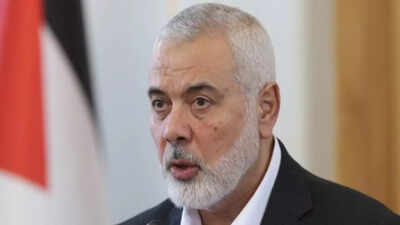Senior Hamas Leader Ismail Haniyeh Assassinated in Tehran: Implications for Middle East Tensions
The Incident
On July 31, 2024, Ismail Haniyeh, a prominent leader of Hamas, was assassinated in Tehran. The Islamic Revolutionary Guard Corps (IRGC) confirmed his death. Haniyeh, who had been living in Qatar since 2017, was in Iran for discussions with Iranian officials when the assassination occurred. Details about the perpetrators and the exact circumstances of his death remain unclear, but the incident has already had significant geopolitical ramifications.
Immediate Reactions
The assassination has sparked a wave of reactions from various political entities:
- Hamas: The organization condemned the assassination and vowed retaliation. Haniyeh’s death is seen as a major blow to Hamas, given his influential role in its political and military strategies.
- Iran: The Iranian government has expressed outrage, with the IRGC stating that the incident will not go unanswered. Iran's support for Hamas is well-documented, and this incident may prompt a reassessment of their security measures and foreign policy strategies.
- Israel: While Israel has not officially commented, the country has a history of targeting key figures within Hamas. This incident is likely to further strain the already tense relations between Israel and Iran.
Broader Implications
The assassination of Haniyeh has several potential implications for the region:
- Hamas-Iran Relations: The attack could strain the alliance between Hamas and Iran. Iran's support has been crucial for Hamas in terms of funding, training, and weaponry. Any perceived failure on Iran’s part to protect a high-ranking Hamas official might lead to tensions within their strategic partnership.
- Israel-Iran Tensions: This assassination may escalate the covert and overt conflicts between Israel and Iran. The longstanding rivalry and mutual hostility between these nations could see new flashpoints, especially if Iran directly blames Israel for the attack.
- Regional Stability: The incident could destabilize the already volatile Middle East. It might trigger retaliatory actions from Hamas or other militant groups supported by Iran, affecting ongoing peace efforts and negotiations.
Historical Context
Ismail Haniyeh was a significant figure within Hamas, having risen through the ranks to become the head of its political bureau. He played a key role in Hamas’s governance of the Gaza Strip and its interactions with other Palestinian factions and international allies. His leadership was marked by efforts to maintain Hamas’s influence and operational capabilities despite numerous challenges, including conflicts with Israel and internal political struggles.
Conclusion
The assassination of Ismail Haniyeh in Tehran marks a pivotal moment in Middle Eastern geopolitics. It underscores the complex and often violent nature of regional alliances and enmities. As the world watches closely, the ramifications of this event will likely unfold over the coming days and weeks, influencing the strategic decisions of key players in the Middle East. The situation remains fluid, and further developments are anticipated as investigations continue and responses from involved parties are articulated.


